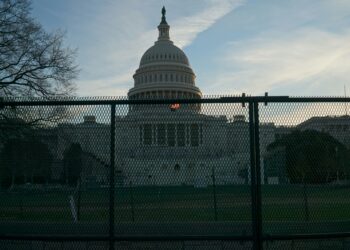President Tinubu’s decision to delay his trip to the G20 Summit in South Africa is a bitter reminder of how badly Nigeria is failing its citizens. The country is crumbling under the weight of kidnappings, terror attacks, and brazen insecurity, yet leadership remains largely reactive, slow, and sometimes absent. The attacks in Kebbi State and at the Christ Apostolic Church in Eruku, Kwara State, are not isolated incidents—they are symptoms of a government that has lost control and, frankly, the will to protect its people.
Schools Under Siege
On Monday, armed bandits stormed Government Girls Comprehensive Secondary School in Maga, Kebbi State, killing the vice-principal, Hassan Makuku, who died trying to protect his students. At least 25 schoolgirls were abducted, leaving families and the community in fear and despair. How many more children must disappear before the government acts decisively? How long will Nigerians continue to pay for the state’s failures?

This is not the first time students have been targeted. The recurring abductions of schoolchildren across Nigeria—from Kaduna to Zamfara to Kebbi—show a systemic collapse of security. The government may promise action, may dispatch Vice President Kashim Shettima for “sympathy visits,” but words do not rescue children. Leadership should mean preventing attacks before they happen, not reacting after bodies are counted and parents cry themselves to sleep.
Worshippers Targeted
Just as the country reels from school kidnappings, armed terrorists struck again, this time at Christ Apostolic Church in Eruku. Worshippers were gunned down in cold blood. Eyewitnesses report chaos, gunfire, and people fleeing into surrounding bushes. The pastor and several others were abducted, adding another horrifying chapter to Nigeria’s long list of church attacks, from Owo to Bauchi and beyond.
These attacks show a government that has no plan, no coordination, and no sense of urgency. Citizens cannot worship safely, students cannot attend school safely, and travelers cannot move freely without fear. And yet, leadership continues to dither, issuing vague statements and hoping the problem disappears on its own.
A Leadership Crisis
Tinubu’s postponement of the G20 trip highlights an uncomfortable truth: the government is on its heels, reacting instead of acting. Security agencies have been given directives, sympathy visits have been staged, and reports are awaited, but Nigerians are dying today, not tomorrow. The government’s slow, reactive approach makes a mockery of the presidency and sends a message to bandits and terrorists: act boldly, and the state will fumble.
Every day, more lives are lost. Every day, more communities are terrorized. Citizens are left to fend for themselves as political leaders count their schedules and meetings abroad. This is not leadership. This is a failure.
Accountability Over Apologies
The gallantry of soldiers like Brigadier General Musa Uba, who lost his life fighting insurgents, is admirable, but even heroism cannot compensate for systemic failure. Families of abducted children, communities affected by massacres, and ordinary Nigerians deserve protection, not platitudes. The president and his team must stop hiding behind delayed trips, carefully worded press statements, and ceremonial visits. Action is overdue, and accountability is long past due.
Bottom Line
Nigeria is collapsing under kidnappings, attacks, and insecurity. The postponement of the G20 trip is not just a schedule adjustment, it is a symbol of a government scrambling to respond to crises it should have prevented. How many more children must be taken? How many more worshippers killed? How long will Nigerians continue to suffer while leadership fails? Until action replaces words, and prevention replaces reaction, the country remains unsafe, and citizens remain abandoned by those sworn to protect them.

















